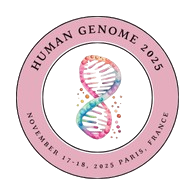Genomic Vaccination
Genomic vaccines are a new class of vaccines that use DNA or RNA to encode specific proteins. Once injected, these genetic materials enter human cells, which then produce the targeted proteins themselves. Compared to traditional vaccine production methods—such as growing proteins in cell cultures or eggs—this approach is often more efficient, faster, and cost-effective.
Conventional vaccines typically rely on inactivated or weakened pathogens, or proteins derived from those microorganisms, to stimulate an immune response. Similarly, many cancer vaccines use specific proteins to target tumor cells. In contrast, genomic vaccines represent a groundbreaking shift by using genes themselves as the basis for immunization, paving the way for significant advancements in both infectious disease prevention and cancer treatment.
- Genes
- Genomic Medicine
- Colorectal Cancers
Related Conference of Genomic Vaccination
21th World Congress on Tissue Engineering Regenerative Medicine and Stem Cell Research
16th International Conference on Human Genetics and Genetic Diseases
19th International Conference on Genomics & Pharmacogenomics
Genomic Vaccination Conference Speakers
Recommended Sessions
- Bioinformatics
- Cancer Genomics
- Cognitive Computing
- Computational Biology
- Drug Detection & Development in Bioinformatics
- Emergency Medicine
- Epigenetics Biomarkers
- Genetically Modified Organisms
- Genome Mapping
- Genomic Approach to Drug Discovery
- Genomic Information in Medicine
- Genomic Vaccination
- Genomics
- Human Gene Therapy
- Human Genetics
- Infectious Diseases
- Medicine Genomics
- Personalized Medicine
- Pharma Genomics & Pharma Informatics
- Preimplantation Genetic Diagnosis
Related Journals
Are you interested in
- 3D Bioprinting, Organ Fabrication & Bioartificial Tissues - Stem Cell 2026 (Netherlands)
- Aging Biology, Longevity Science & Cellular Rejuvenation - Stem Cell 2026 (Netherlands)
- Artificial Intelligence and Computational Biology in Regenerative Medicine - Stemgen 2026 (Japan)
- Bioinformatics, AI Models & Predictive Regeneration - Stem Cell 2026 (Netherlands)
- Biomaterials and Nanotechnology in Regenerative Medicine - Stemgen 2026 (Japan)
- Cancer Stem Cells & Targeted Therapeutics - Stem Cell 2026 (Netherlands)
- Cancer Stem Cells and Oncology - Stemgen 2026 (Japan)
- Cardiac, Vascular & Musculoskeletal Regeneration - Stem Cell 2026 (Netherlands)
- Cardiovascular Regeneration - Stemgen 2026 (Japan)
- Clinical Translation of Stem Cell Therapies - Stem Cell 2026 (Netherlands)
- Clinical Trials and Translational Stem Cell Research - Stemgen 2026 (Japan)
- Commercialization, Biobanking & Industry Innovations - Stem Cell 2026 (Netherlands)
- Ethical, Legal, and Social Implications in Stem Cell Research - Stemgen 2026 (Japan)
- Ethical, Regulatory & Quality Control Frameworks - Stem Cell 2026 (Netherlands)
- Exosomes, Extracellular Vesicles & Cell-Free Therapeutics - Stem Cell 2026 (Netherlands)
- Future Trends: Organoids, Bioengineering, and Next-Generation Therapies - Stemgen 2026 (Japan)
- Gene Editing and CRISPR Technologies - Stemgen 2026 (Japan)
- Gene Editing, CRISPR Therapies & Regenerative Genomics - Stem Cell 2026 (Netherlands)
- Induced Pluripotent Stem Cells (iPSCs) and Reprogramming - Stemgen 2026 (Japan)
- Mesenchymal Stem Cells (MSCs) in Therapy - Stemgen 2026 (Japan)
- Regeneration in Neurodegenerative & Spinal Cord Disorders - Stem Cell 2026 (Netherlands)
- Regenerative Approaches in Diabetes & Metabolic Disorders - Stem Cell 2026 (Netherlands)
- Regenerative Dentistry and Craniofacial Applications - Stemgen 2026 (Japan)
- Regenerative Immunology & Immune Modulation - Stem Cell 2026 (Netherlands)
- Regenerative Medicine and Tissue Engineering - Stemgen 2026 (Japan)
- Stem Cell Banking and Cryopreservation - Stemgen 2026 (Japan)
- Stem Cell Biology and Cellular Mechanisms - Stemgen 2026 (Japan)
- Stem Cell Engineering & Cellular Reprogramming - Stem Cell 2026 (Netherlands)
- Stem Cells in Neurological and Neurodegenerative Disorders - Stemgen 2026 (Japan)
- Tissue Engineering, Biomaterials & Smart Scaffolds - Stem Cell 2026 (Netherlands)

